genetics
Latest

Hitting the Books: How calculus is helping unravel DNA's secrets
Welcome to Hitting the Books. With less than one in five Americans reading just for fun these days, we've done the hard work for you by scouring the internet for the most interesting, thought provoking books on science and technology we can find and delivering an easily digestible nugget of their stories.
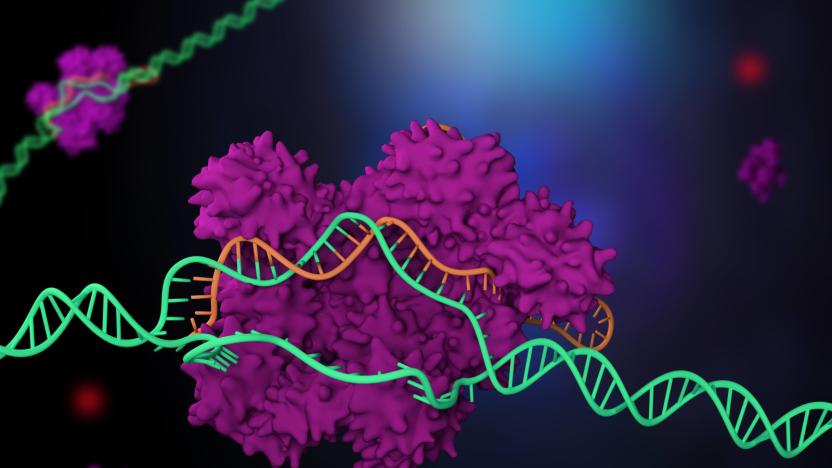
CRISPR gene editing has been used on humans in the US
The first human trials in the US for CRISPR gene editing are officially underway. A University of Pennsylvania in Philadelphia spokesman has confirmed to NPR that two cancer patients, one with myeloma and one with sarcoma, have received CRISPR treatments after standard treatment didn't hold. The trial removes, modifies and reinserts immune cells in hopes they'll destroy cancerous cells.

China says it cloned a police dog to speed up training
It can be costly and time-consuming to train police dogs when each candidate might have different skills and personalities. China's solution? Make copies of the best-performing dogs. The state-backed China Daily reports that the city of Kunming, the Yunnan Agricultural University and Beijing Sinogene Biotechnology are about to train Kunxun, a two-month-old Kunming wolfdog cloned from a "great" canine detective. The aim, as you might guess, is to save time and money -- they'll know that Kunxun is more likely to learn quickly and perform well.
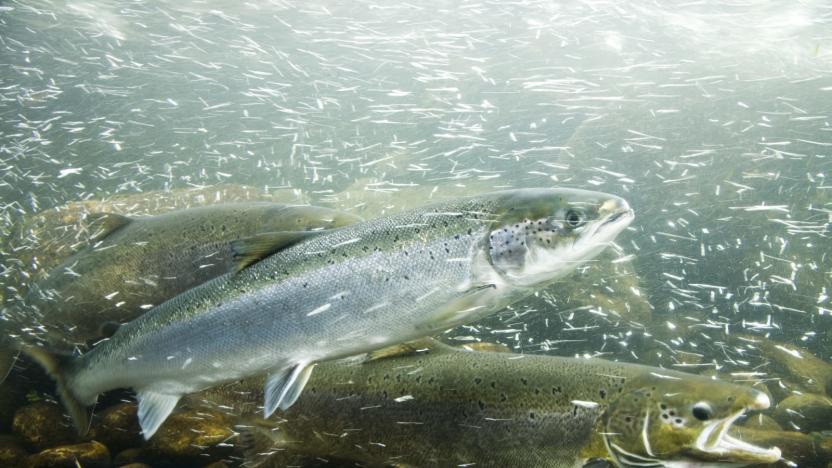
FDA removes restrictions on genetically modified salmon
Genetically modified fish are about to become more of a practical reality in the US. The Food and Drug Administration has lifted an import alert on AquaBounty's genetically modified AquAdvantage salmon eggs, allowing the fish to reach the US over three years after they received initial approval. Congress told the FDA in 2016 to block modified salmon until it issued labeling guidelines, and the Administration believes Congress' newly-enacted National Bioengineered Food Disclosure Standard meets that criteria.
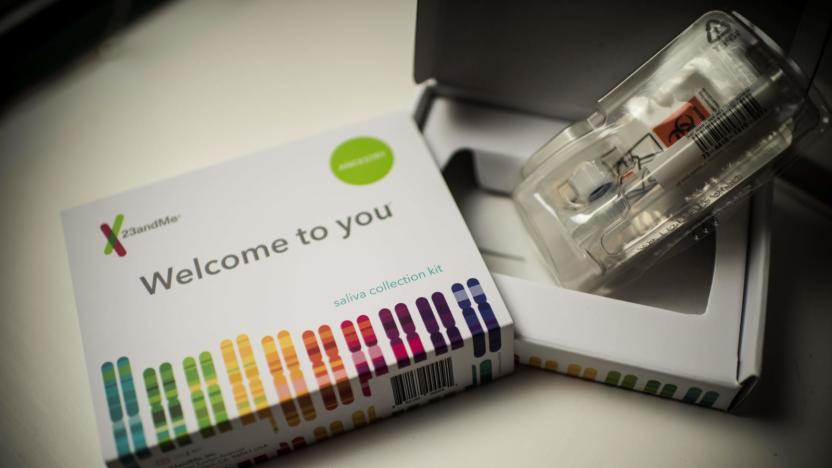
23andMe says gene report can detect the risk of type 2 diabetes
23andMe is betting that its gene testing kits can help identify another major health risk: diabetes. The company plans to offer a report that identifies your genetic predisposition toward type 2 (that is, adult onset) diabetes. Unlike the company's earlier reports, the test provides a polygenic score based on gene variant research data from roughly 2.5 million customers, 70,000 of which reported diabetes -- it's not relying on any public information. Ideally, this would help you change your diet and habits to reduce the chance of developing diabetes.

Stem cell transplant offers hope for an HIV cure
There appears to be more than one promising sign in the quest for an HIV cure. Researchers have given a London patient a bone marrow stem cell transplant that has left him HIV-free for the past 18 months. As the donor has a very rare genetic mutation (CCR5 delta 32) that makes them HIV-resistant, the stem cells sent the HIV into remission with only a "mild reaction" from the treatment. It's a positive sign, and it suggests that the stem cell transplants that 'cured' Tim Brown in 2007 weren't just flukes.
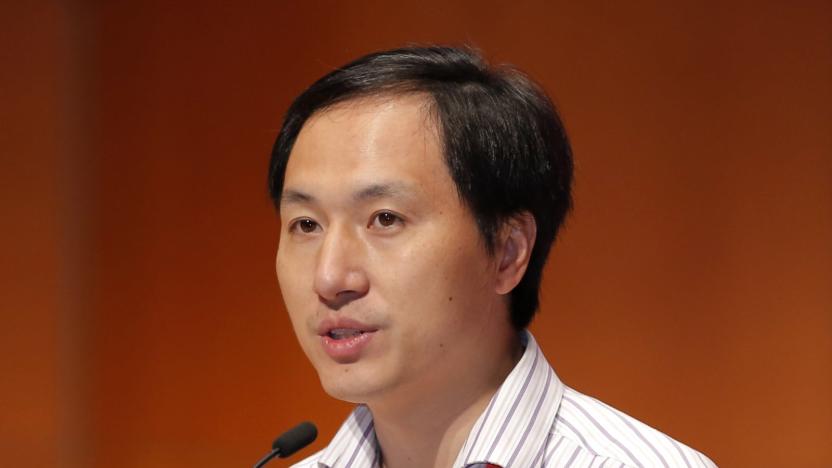
China detains scientist who claims to have made gene-edited babies
China was quick to halt the work of scientist He Jiankui after he claimed to have created the first genetically edited babies, but that apparently wasn't enough. After weeks of uncertainty surrounding He's whereabouts, the New York Times has learned that the government has placed the researcher under house arrest at a housing facility in the Southern University of Science and Technology in Shenzhen. He can make calls and send emails, but he can't leave. Guards prevent people from getting close to either He's de facto residence or the offices involved in his research.

Chinese scientist claims he edited babies' genes with CRISPR
A Chinese scientist claims to have created the world's first genetically-edited babies using the CRISPR/Cas9 tool. He Jiankui (pictured) told the Associated Press that twin girls, Lulu and Nana, were born earlier this month following embryo-editing using CRISPR to disable the CCR5 gene, which allows the HIV virus to infect cells. An American scientist, Michael Deem, also reportedly assisted He on the project at the Southern University of Science and Technology of China.

Ancestry hopes you'll share your DNA for a custom Spotify playlist
What would your music selection sound like if it reflected every last bit of your genealogy? Ancestry can tell you... if you're willing to shed some control. The company has partnered with Spotify to offer custom playlists based on your genetic heritage. It's fairly straightforward on the surface: once you've received your results from an AncestryDNA test, you can visit a website to generate a playlist based on the regions that represent your genetic code. You may hear A Tribe Called Red if you have native North American roots, for instance, or Papa Wemba if you have certain African lineage.

Researchers can track cell development through 'genetic barcodes'
A newborn is composed of roughly 26 billion cells when he or she enters the world naked, screaming and rather gooey. Figuring out how those multitudes of cells came to be from a single zygote remains among the greatest challenges in developmental biology. But researchers from the Wyss Institute at Harvard University may have finally cracked the code -- through the novel use of CRISPR technology to generate a genetic barcode.

Mixed-gene French grapes may lead to cheaper, safer wine
French wineries have to use a lot of pesticide to keep their grapes healthy, and that's both expensive and costly -- a problem when some countries don't have those problems. The country might just have a solution, though. Researchers at France's Institute of Agronomical Research (INRA) recently received permission to grow four grape varieties that are genetically resistant to mildew rot, eliminating much of the need for pesticides. Where a winery typically needs to spray pesticides about 15 times a year, the INRA varieties may only need one or two.
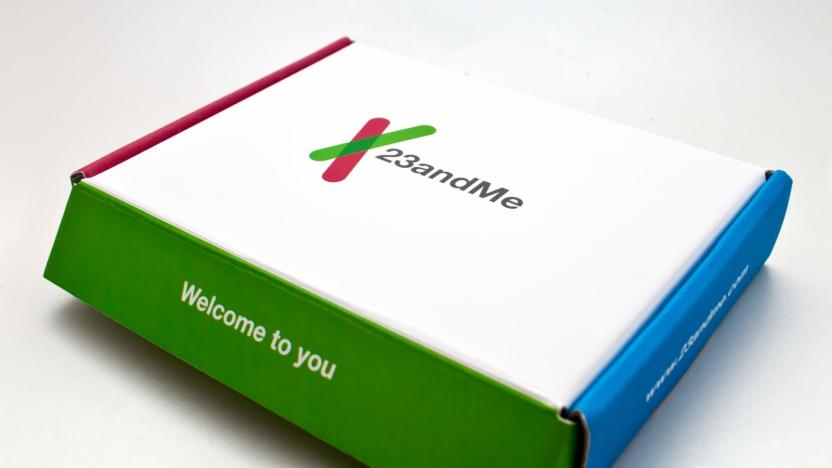
GSK to use 23andMe’s DNA library in drug development
DNA testing company 23andMe has partnered with pharmaceutical giant GlaxoSmithKline (GSK), in a bid to develop new drug treatments. 23andMe, which gives customers insight into their genetic makeup via postal saliva tests, has some five million customers -- a potential DNA database considerably larger than those generally available to the scientific community. "By working with GSK, we believe we will accelerate the development of breakthroughs," 23andMe CEO Anne Wojcicki wrote in a blog post.
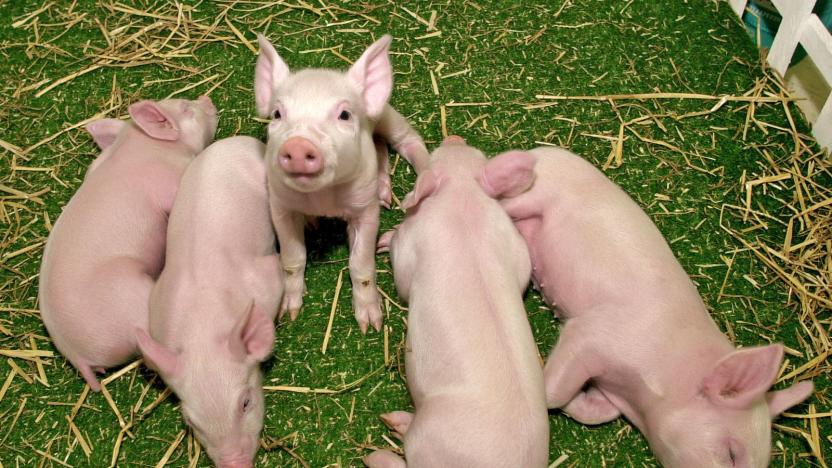
Tomorrow's transplant organs could come from human-pig hybrids
With a lion's head full of gnashing teeth sitting atop the body of a goat and a snake for a tail, the Chimera of Greek mythology is a terrifying sight -- and that's before it starts breathing fire. Chimera have long served as cautionary touchstones in popular culture, often as examples of humanity's foolhardy quest to control nature. Take for example the tragic tale of Nina Tucker from Fullmetal Alchemist, the residents of The Island of Dr. Moreau or Sorry to Bother You's genetically-engineered slave race of Equi Sapiens. But in the medical field, chimera -- real life human-animal hybrids -- could hold the key to solving the global shortage of transplantable organs.

Police are using ancestry sites to track down more cold case suspects
In April, California investigators arrested Joseph James DeAngelo for some of the crimes committed by the elusive Golden State Killer (GSK), a man who is believed to have raped over 50 women and murdered at least 12 people between 1978 and 1986. Investigators tracked him down through an open-source ancestry site called GEDMatch, uploading the GSK's DNA profile and matching it to relatives whose DNA profiles were also hosted on the website. Now, using those same techniques, a handful of other arrests have been made for unsolved cases, some going as far back as 1981.

DNA synthesis breakthrough could lead to faster medical discoveries
For all of the advancements in genetic research, DNA synthesis hasn't changed much in over four decades. That could make it a serious obstacle to scientists who are otherwise racing to develop a new drug or understand the human body. It might finally catch up to modern technology, however. A group at the Berkeley-based BioEnergy Institute have devised a synthesis technique that promises to be faster, more accurate and affordable. If all goes smoothly, it could significantly accelerate the pace of medical and biochemical discoveries.

California Rep. requests 23andMe to help reunite children with families
California Representative Jackie Speier reportedly asked DNA-testing company 23andMe to help reunite children separated from their parents at the US-Mexico border due to Trump's 'zero tolerance' immigration policies. She told Buzzfeed that she was concerned with the lack of records for families that have been split up, but it was unclear if, or to what extent, the genetics company would get involved.

Gene-edited rice plants could boost the world's food supply
Rice may be one of the most plentiful crops on Earth, but there are only so many grains you can naturally obtain from a given plant. Scientists may have a straightforward answer to that problem: edit the plants to make them produce more. They've used CRISPR/Cas9 gene editing to create a rice plant variety that produces 25 to 31 percent more grain per plant in real world tests, or far more than you'd get through natural breeding. The technique "silenced" genes that improve tolerances for threats like drought and salt, but stifle growth. That sounds bad on the surface, but plants frequently have genetic redundancies -- this approach exploited this duplication just enough to provide all of the benefits and none of the drawbacks.
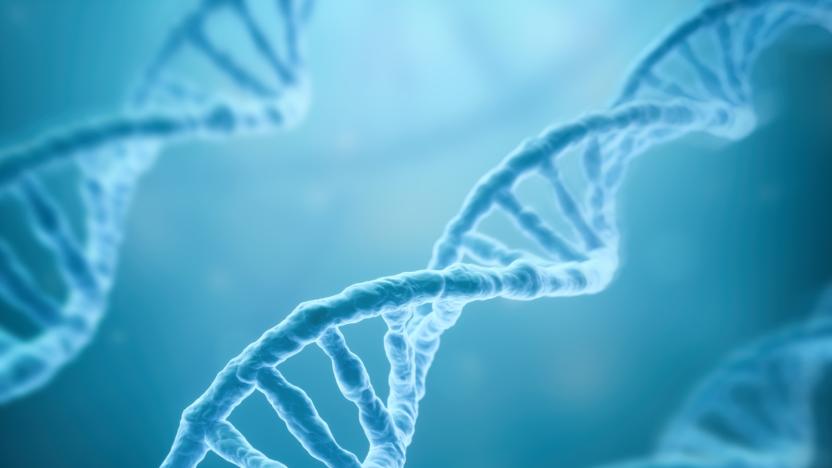
Science takes a step toward coding virus-resistant human cells
In 2016, scientists unveiled one of the most ambitious genetic engineering efforts yet: Genome Project-write wanted to do nothing less than create (not just edit) human cells immune to all known viruses. There was a rough start that included dramatic funding shortfalls, but it now looks like the initiative is getting underway in earnest. Harvard's Wyss Institute and French immunotherapy company Cellectis have formed a partnership that will see Cellectis supply genome engineering tools to a Wyss team led by George Church. They'll use custom enzymes to remove redundant codons (nucleotide "triplets" that produce amino acids for specific proteins) and prevent viruses with those codons from hijacking cells to produce copies of themselves.

FDA greenlights 23andMe's direct-to-consumer cancer risk test
Cancer screening isn't all that accessible -- you typically need an obvious genetic background that suggests you're at risk, which doesn't help if you slip between those cracks. You shouldn't have to run that gauntlet for much longer. The US Food and Drug Administration has approved a 23andMe direct-to-consumer test that details the risks of breast, ovarian and prostate cancer based on BRCA1 and BRCA2 genetic mutations. Once the report is available, you wouldn't have to worry about qualifying for a screening -- you could send in a saliva sample and find out on your own terms.
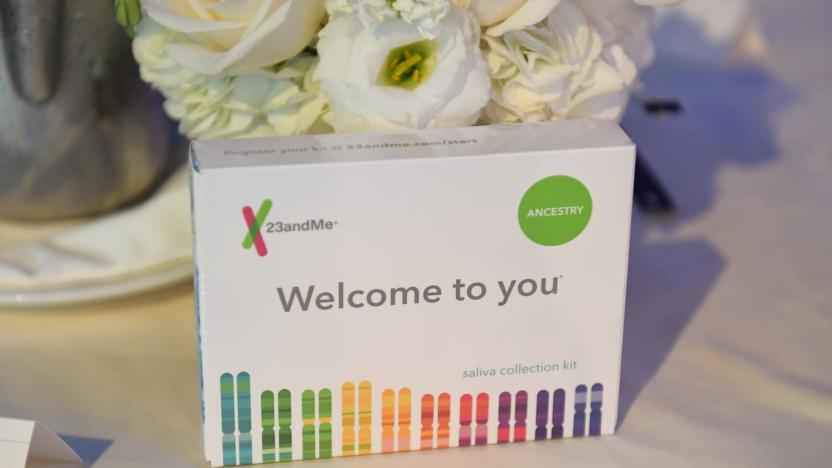
23andMe now paints a far clearer picture of your DNA ancestry
To date, 23andMe's Ancestry Composition report could trace your genetic roots back to 31 populations. That's decent, but not exactly the most accurate representation of your lineage. It could soon be more accurate, however. The company is updating its methods to trace ancestry back to 120 more populations, for a total of 151. If you have uncommon origins, you might have a better chance of discovering them.





